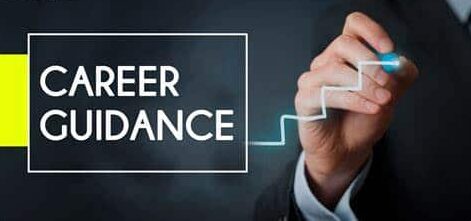When faced with success and failure interview questions you might be asked how do you handle failure interview question you might be asked questions such as, “How do you handle failure?” or “How would you define success?”
This is a wide question, like the ones asked about job performance without either a right or wrong solution, and it offers you a superb opportunity to show your qualities—determination, inspiration, drive, exuberance, and a shared cooperative vision—in the answers you provide and your body language.
Table of Contents
ToggleWhat this question means?
A query like this is designed to provide your future employer with an insight into your dedication to your goals, work ethic, and overall personal characteristics.
You’ll also be expected to show that you have what it takes to blend in with the company’s culture. Are your company’s objectives consistent with your definition of success? Do your long-term goals and objectives mesh with the company’s mission?
You can also answer to this interview question in this manner.
Option 1
Whenever I’ve been given any kind of target, and I’ve been able to achieve the target within the timeline and at the same time value the organization that I work for, it will be success to me.
This interview question answer here demonstrates that you are goal-oriented, as well as that you have did some research and found out why high consistency is valued by the company for which he is interviewing.
Option 2
You can also respond to this interview question as
When I’m able to achieve my personalized goals at the same time, and help the team to work, unanimously. When all individual working in the group have been able to achieve their own set of personalized goals, and even have been able to reach the common goal as a whole. I consider myself successful.
In this interview question answer, the candidate demonstrates that she takes responsibility for her job duties and is motivated to achieve her goals. When uttered with appropriate voice and eye contact, this reply is effective at persuading a questioner that the applicant has a good work ethic.

When it comes to the job interview question, you cannot talk anything related to general things rather be more about job centric, and performance centric. So success is never about inclusivity in this way, it is all about using your right choice of words, and most importantly, how do you think and whether you will be able to achieve your targets.
Option 1
The interviewer never really asks how do you handle success as an interview question.But just in case if you ever face this question here are some short and crisp answers :
I applaud myself for the success but don’t get attached to it.I celebrate and move on to the next work.
This interview question answer shows you don’t undermine your success yet you don’t hold onto it and boost your ego.
Option 2
I see success and failures as two faces of the same coin. I am not swayed by success but take note of it to learn what worked and how I can replicate it again if needed,
This interview question answer works on the same line. The idea is not to seem too egotist about your success or to push it aside as something trivial.
How do you handle failure interview question answer and Tips
When you’re job interviewing, you might come across how do you handle interview question and thus need to be prepared for how do you handle failure interview question answer.
Let’s just talk about what it is that they’re actually looking for when they ask the how do you handle failure interview question.
There’s really three things that you need to keep in mind as you tell your answer to how do you handle failure interview question, and the major points here are that these three things are what the employer is trying to get out of the story,
- the story you tell
- the content of the story and
- Detail is not nearly as important as the context they’re trying to grab out of it,
So, let me tell you what I mean by that. When they ask you how do you handle failure interview question , they’re less concerned with what the specific Failure was, but more concerned with did you own it.
So did you take responsibility, or are you the kind of person that’s dishing.
“Well I failed at this because I was given a poor product to maintain those kinds of things.”
If you fall into the blame game while replying to how do you handle failure interview question it’s not going to go well so the employers first looking to see by asking this interview question, did you own it or not.
How do you handle failure interview question sample answer
“So, as I made this mistake. Here’s what I then discovered. I certainly needed to experience it first in order for me to learn that, but the great thing was, here’s what I learned.”
The word learned that needs to be in there that second. And then the third thing is, Well, how’d you recover, what was the ultimate outcome. Did you actually make that Failure into a fruitful lesson.
You could have failed at something, but what did you do with what you learned to make it a success, or at least did you address the issue.
I failed when I initially gave this customer something that the customer didn’t want. Here’s what I learned, and then the recovery was I worked with the customer to, and then what ultimately happened.
- Did you own it.
- Did you learn from it.
- And how did you recover.
Now here’s a little bonus tip for you for your how do you handle failure interview question.
I think it’s nice for you to add your perspective about life while answering how do you handle failure interview question, lots of people are afraid to make mistakes. Still, I think if you can show them that “hey, I know, throughout my career that I am going to continually encounter things that I don’t have experience with. And I think that’s a big positive part of growing, and I think mistakes or these failures if you want to call them that are going to be part of the overall learning process so I embrace those I’m not afraid of them.”
“We don’t want to do them on purpose, obviously, but I think making mistakes, failing in certain things is going to be part of stretching our products, our services and the other things that we bring forward to our teams and our communities and our customers.”





